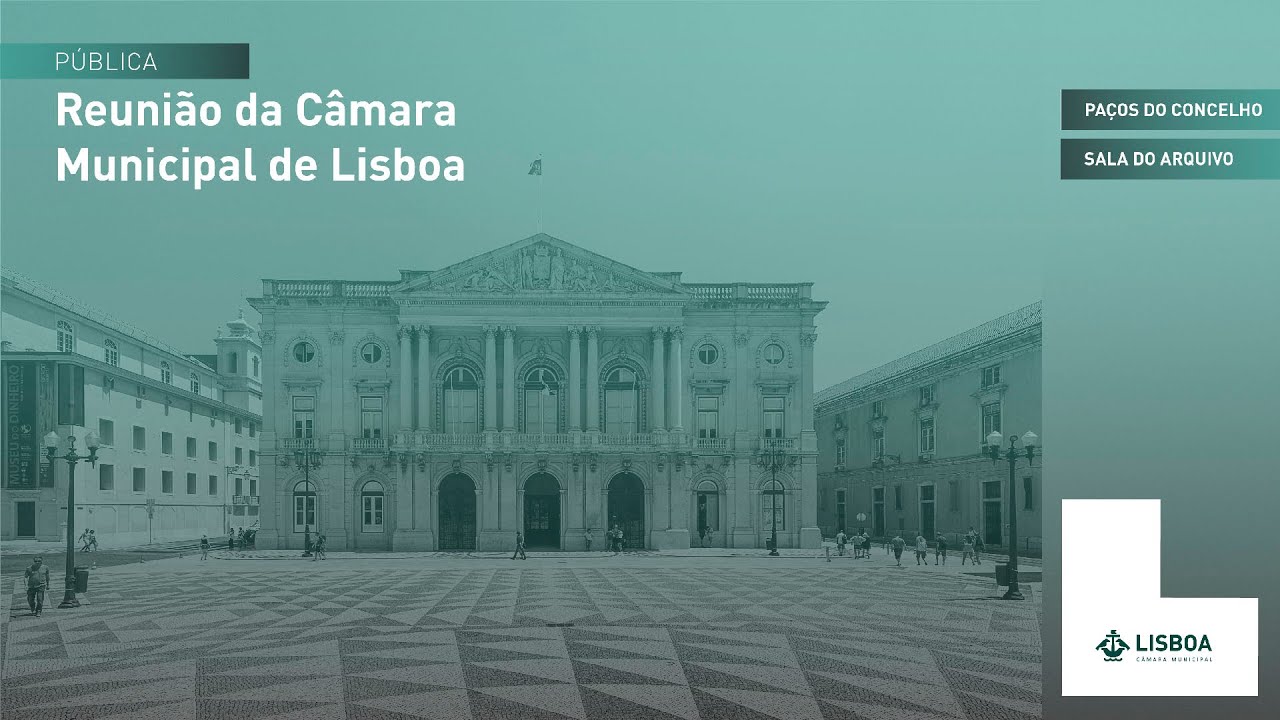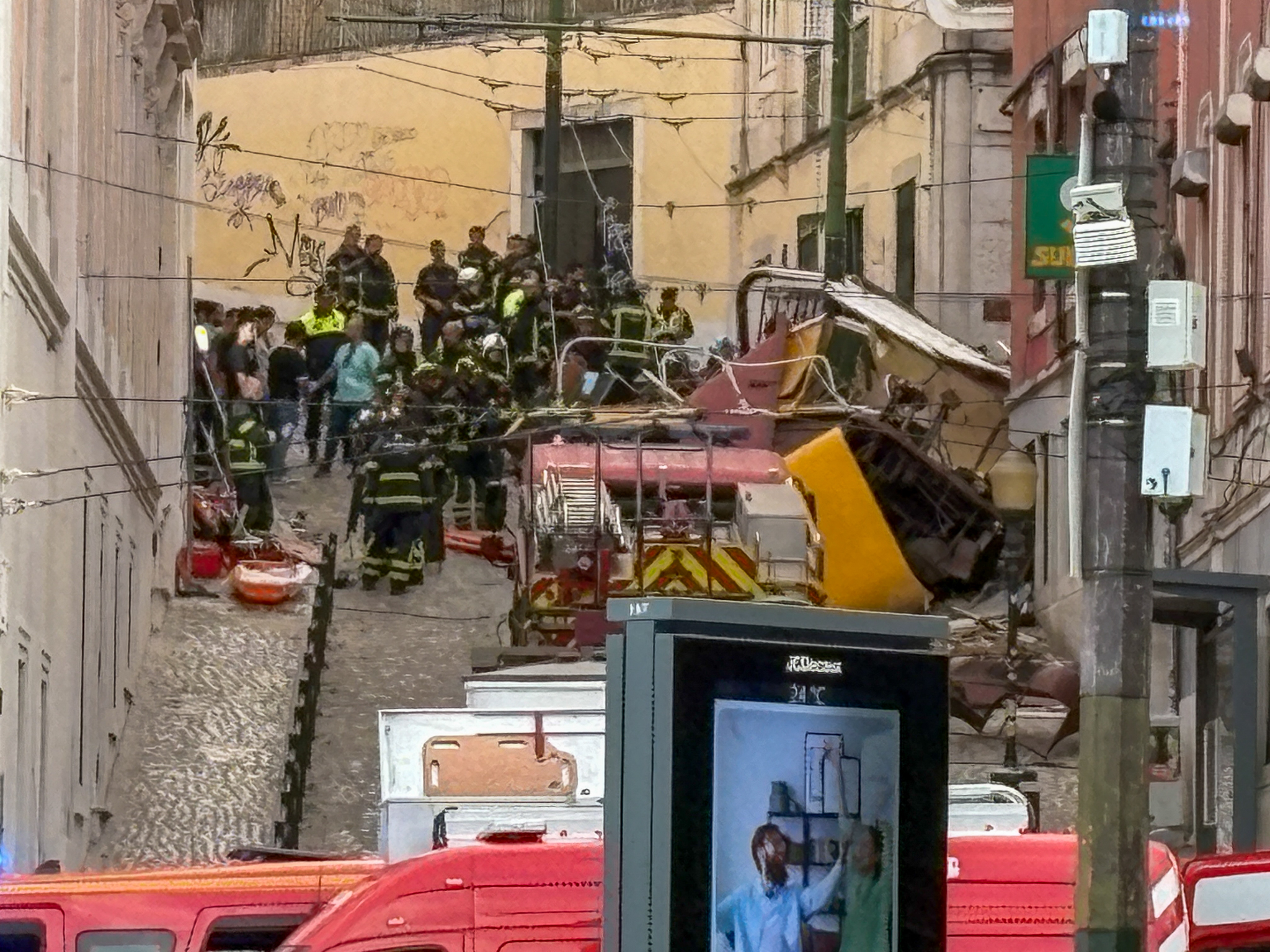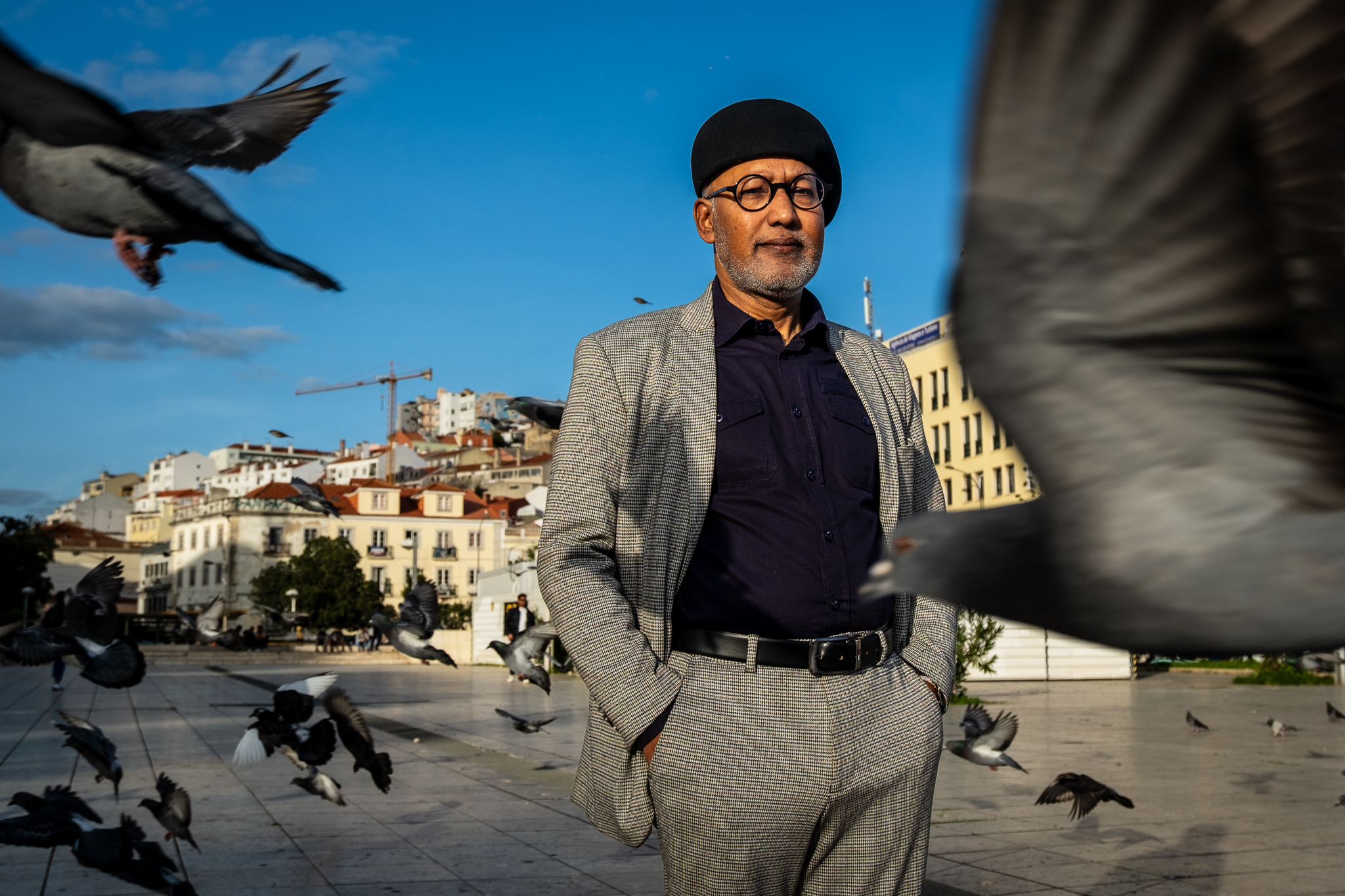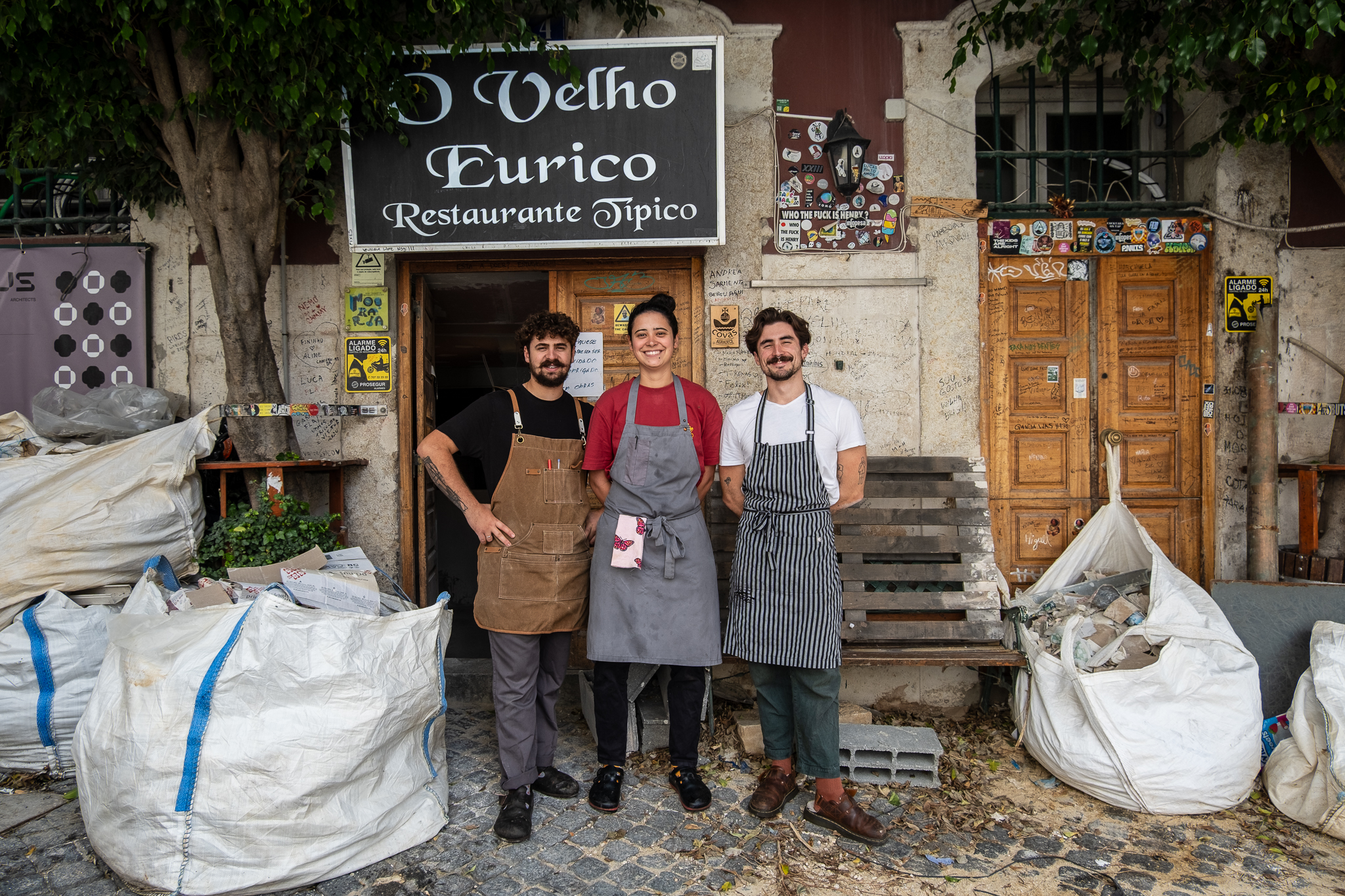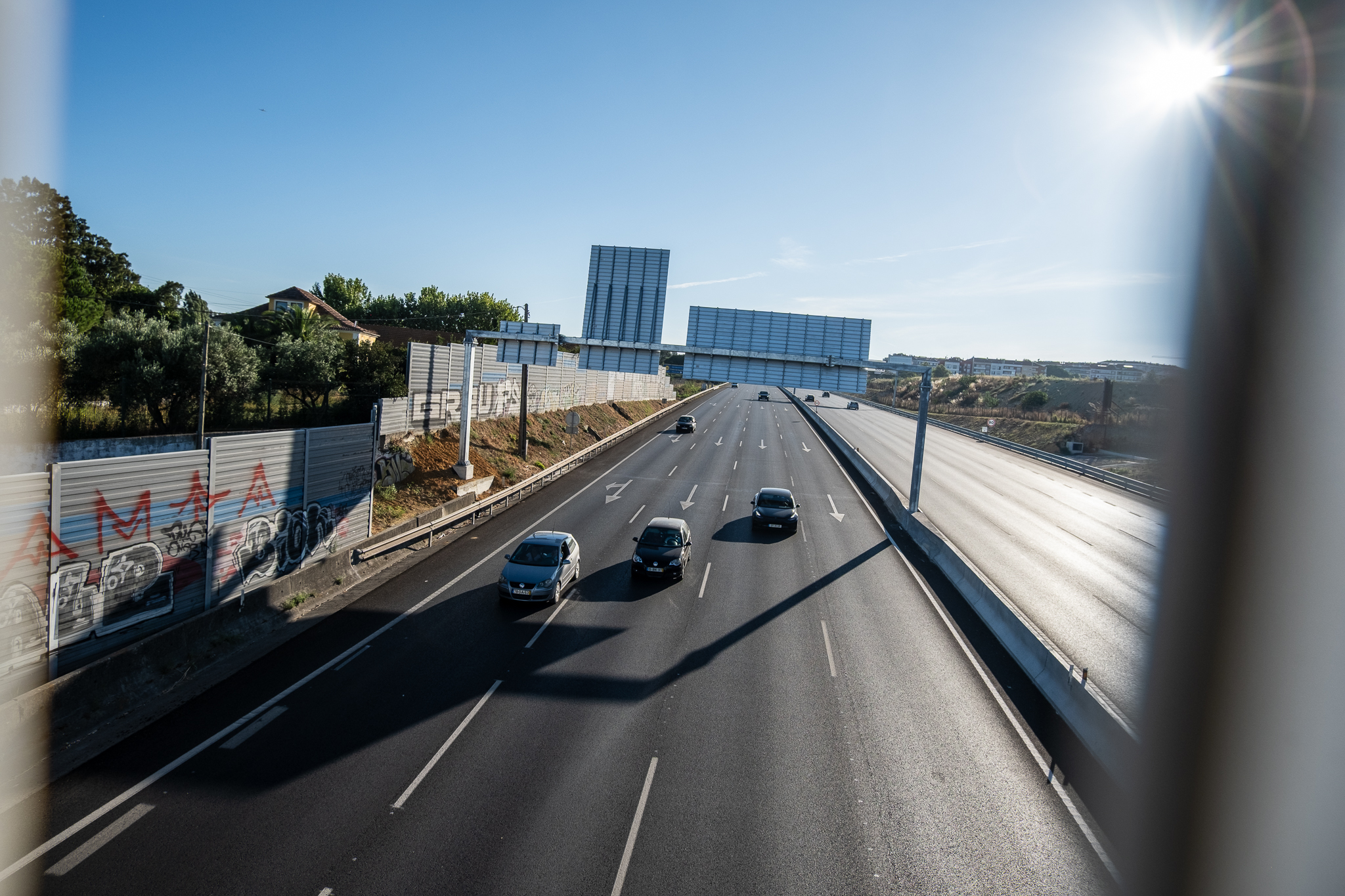In a meeting of the city council's executive that lasted more than seven hours, the left did not spare any criticism to Carlos Moedas' actions in the last few days. Miguel Gaspar (PS) accused the mayor of spreading "fake news" and of not having the ability to "be critical of the numbers" of an alleged study.

From the extensive proposal of the Livre for a "reducing dependence on fossil fuels in the city of Lisbon"Two measures have been echoed in the press in recent weeks: the closure of Avenida da Liberdade to traffic on Sundays and public holidays, and the reduction of maximum speed limits on the city's avenues and streets by 10 km/h.
At a public meeting of the Chamber on Wednesday 25 May, the PCP presented a proposal to operationalize both measures with time for public consultation. The document was eventually signed by Livre, PS and the PSD/CDS coalition (which means that, in practice, it became a proposal also from these political forces), and was unanimously approved.
The proposal drawn up by the Communists believes that both the suspension of traffic on Sundays on Avenida da Liberdade and the reduction of speed limits in the city should be implemented. subject to a prior assessment involving a broad participatory process and comprising basically four steps:
- firsta "prior technical and financial assessment by the competent municipal services";
- after, an auscultation of "State bodies for road safety, mobility and transport considered relevant", public transport operators, and associations and other relevant and representative organizations for each case;
- thereafterthe production of relevant documentation, such as "studies, reports and opinions" and its availability to the public;
- finally, "a minimum consultation and public participation period of 45 days" in which anyone can participate.
In the case of Avenida da Liberdade, the PCP proposal establishes that the "partial elimination of car traffic on Avenida da Liberdade on all Sundays and public holidays" should be "made on the terms that such a measure has been implemented in the past, i.e. allowing access to the entire Avenue from the sides" - a specificity that did not appear in the original text of the Livre.
As for speed reduction, it opens the way to "an assessment of the appropriateness and prioritization of the routes where the measure will be applied" - i.e,"an implementation plan for the measure", which "may contemplate pilot experiences, delimited, of progressive enlargement, a timetable for the implementation of the measure, as well as mitigation measures of impacts that are appropriate, duly articulated with the Municipal Road Safety Plan" (a plan which, however, has been slow to be finalized).
The proposal presented by the PCP also defines that, if other streets and avenues in the city of Lisbon are to be cut, as also originally proposed by Livre, these initiatives should be implemented. "after the opinion of the services, the agreement of the respective Parish Council and the promotion of public consultation and participation".
The communists also believe that the Lisbon Chamber "should give priority to the implementation of new low-speed traffic zones - Zones 30 - within consolidated neighborhoods, near schools, areas of higher density of local commerce, leisure areas and intersections, to be assessed according to needs".

It should be noted that, despite the current Municipal Master Plan (PDM) - which defines the transformation of several neighborhoods in the city into Zones 30 - Lisbon City Council has been very slow to move. The implementation of these Zones 30 has slowed down in recent years and, when it has been carried out, it has been only with vertical and horizontal signage - that is, without effective traffic calming measures. Throughout Lisbon's neighborhoods it continues to accelerate, endangering pedestrians and making streets more unpleasant and unsafe. At 30 km/h drivers need to less time and distance to react to an unexpected obstacle at 50 km/h - in the event of a collision with a more vulnerable person (such as a pedestrian or cyclist), this could make a difference to the survival of the more fragile.
Right next doorIn Spain, 30 km/h is now the norm in all Spanish cities, towns and villages, with the exception of structural avenues (i.e. with two lanes of traffic in each direction) where it is still possible to drive at 50 km/h. And also Paris has introduced a 30 km/h limit with the aim of reducing pollution and improving road safety. Brussels inclusive has set up a website in which he explains how making almost the entire city a 30 km/h city has positive consequences for the safety of all people and for noise pollution. The consensus is built, also on the side of European Union bodies or the National Road Safety Authority (ANSR): it is crucial to calm cities down, with a goal of achieving zero road deaths by 2030. The pedestrian death rate puts Portugal above the EU average and the biggest problem in terms of accidents is within localities. To halve the number of deaths, current speed limits would need to be reduced by 18-21 km/h, according to LNEC, in the framework of a study carried out and which will serve as preparation for the future National Road Safety Strategy: Vision Zero 2030.
Unanimously approved
The PCP proposal was approved unanimously, that is, with the votes of all the political forces represented in the Lisbon City Council (PSD, CDS, PS, PCP, Livre, BE and Cidadãos Por Lisboa). In a statement sent to the newsrooms, the PCP municipal office said that the original proposal by Livre did not foresee something "fundamental": "the prior study of the impact of the measures, the consultation of the populations and the involvement of the municipal services in the design of the most appropriate ways of implementing the measures, in order to maximize positive effects and minimize possible negative effects". The PCP believes that "negatively marked the public perception and debate of these measures", e "has limited the prospects of prompt and effective implementation of measures that have a significant potential to improve air quality in the city".
The communists say take over, "with a sense of responsibility, the intention to operationalize the implementation of these measures", which, according to the PCP, have "positive impact not only on improving the city's air quality, but also on traffic calming, increasing road safety, improving conditions for the enjoyment of public space and creating better conditions for the healthy coexistence of different modes of transport".
Carlos Moedas also had a proposal to operationalize the Livre measures with a public consultation process, as previously announced to the press. But the Mayor decided to withdraw it and instead endorse the PCP resolution, which he promptly praised, saying that "go to the meeting" of what were their "statements from the outset" on the matter. Moedas said he regretted "that the situation has arrived" to the point it has reached. "I think you all know my commitment to fighting climate change. It's a commitment that comes from a long way back, and it comes from the European Commission."said Moedas. "It is good not to forget that there are more than 80 stores, that there are more than 15 hotels [on Avenida da Liberdade], that every Saturday and Sunday many people who are not even from Lisbon come to see the shows, whether at Tivoli, Parque Mayer or other venues, and that these people have the right to see the shows."

On opinion article published in Expresso last weekend, Carlos Moedas said he was "strongly committed to making the city carbon neutral by 2030" and that "Examples of this ambition are the free public transport for the oldest and youngest, which comes into force from the summer, or the Lisboa Solar program, which will allow the use of the roofs and rooftops of the city of Lisbon for decentralized production of solar energy in self-consumption units. Or even the gradual change of public lighting to LED lamps throughout the city ". But, as he wrote in Expresso and reiterated at this Wednesday's public meeting, the Mayor of Lisbon said that the transition has to be made with the people of the city, listening to them, so as not to create social friction.
João Ferreira, a PCP councillor, commented at Wednesday's meeting that Livre's proposal, although "fair in its purpose", presented a "a very broad and somewhat disconnected set of measures of a very diverse nature that would, in our opinion, warrant separate consideration. What we decided to do was to isolate in our proposal the measures concerning transit"he commented. The communist added that the party had proposed to Livre "several proposals for amendments that were eventually rejected in their entirety and which basically said this: study the impacts of these measures, listen to the population and other relevant entities in the life of the city on the adoption of these measures, involve the municipal services in the design of the most appropriate form of these measures". This step of prior study was, for João Ferreira, essential in order not to create "this situation of a certain incomprehension, a certain animosity, and I would even say toxicity in the debate".
Left strongly criticizes Moedas
The public meeting of the Lisbon City Council on Wednesday, May 25, lasted almost seven and a half hours, and there was one central theme: the controversial Livre proposal, approved by a majority at a previous meeting, to close Avenida da Liberdade on Sundays and reduce the maximum speed of the city's avenues and streets by 10 km/h, among other measures aimed at reducing the speed limit. "reducing dependence on fossil fuels in the city of Lisbon". The full proposal can be found here, in this article or in the following.
The left-wing majority of Lisbon's city council has harshly criticized the current mayor, who in the last week has made statements to the media, saying, for example, that the closure of Avenida da Liberdade on Sundays would not be a good idea. would "hundreds of redundancies" and that if refused to implement the resolution that the majority of councillors voted in favor of without a prior assessment of the impact of the measures. Carlos Moedas also criticized the opposition, saying that "they still don't understand that it was the PSD who won the elections" - statements based on a lack of clarity about how local democracy works, as we explained here (a city council is made up of people from different political forces in a percentage corresponding to the votes in the municipal elections and all councillors, even if from lists other than that of the President, can present and vote on proposals for the city).
In the same article, Moedas based his argument on estimates from what he referred to as an "international consultancy", but which is nothing more than a communications agency (the kind that sends press releases to journalists) and which compiled a factually uninformative and inaccurate article. A communications consultancy - BA&N in this case - does not even have the skills to study the economic impacts of measures that concern the field of the city, mobility and engineering. In this context, Miguel Gaspar, PS councillor who in the previous mandate had the Mobility portfolio, accused Moedas of spreading "fake news" and of not having had the capacity to "be critical of the figures you have been spreading" of the supposed study, which is based on unrealistic assumptions (for example, it assumes that in Lisbon you always drive at 50 km/h, when the average speed of the city is 12-14 km/h in rush hour and when there are several obstacles in the city such as crosswalks and traffic lights) and that "a 1st year Transport student in Civil Engineering - you must have had that subject, I did at least - would know how to dismantle".

Ricardo Moreira, BE councillor replacing councillor Beatriz Gomes Dias, also criticized the BA&N report that Moedas circulated: "This is not really a study. It's a pamphlet from a consultancy whose director writes articles about cars. I've got some here"he said, reading out some examples. Rui Tavares, from Livre, suggested that the alleged study should be sent to the Nobel Committee. "because there is some new law of physics that has been discovered" because it is said that "the faster cars go, the less time they are on the road, the less greenhouse gas emissions are produced".
The supposed BA&N study calculates what the cost of a speed reduction in the city might be, taking into account an increase in travel time and fuel consumption. BA&N even says that a speed reduction from 50 km/h to 40 km/h implies an increase of 6.8% in CO2 emissions and 7% in fuel consumption, and suggests an ideal speed of between 60 and 80 km/h to minimize gas emissionsThis is unaffordable in a city and goes against all recommendations.
Harsh in his words during the public meeting of the City Council, Miguel Gaspar regretted that the last week has been "a horribilis week of Lisbon city governance". "Lisboners will certainly be disappointed with our lack of joint capacity for dialogue. It was important that we all manage to zero this situation and have the ability to sit around the same table to build, together "He added that "the first effort for this construction of the Mayor, because it is who "presides over the House and who controls the House agenda" and because "it is the President who, when he receives a proposal from Livre, decides whether or not to call us to discuss it".
Rui Tavares said that the proposal that Livre submitted to the City Council on April 12 was only discussed a month later, on May 11, and that all this time it was "on the table" of Moedas. According to the Livre councillor, a reply was received on April 22 that the proposal would be "on the table". "for consideration by the relevant councillors" (i.e. by councillors on the Moedas list). "We waited for that analysis and no analysis came. On April 27, this proposal was mentioned at a town hall meeting and Mr. President asked, and I quote, to work on it together. The Livre councillor Patrícia Gonçalves [replacing Rui Tavares at that meeting] agreed to postpone [the discussion and vote on the proposal] for a week, but it was postponed for two weeks"., reported Rui Tavares.
Ricardo Moreira reinforced Livre's position, saying, addressing Moedas, that "On the proposal, you never said a word to reach consensus. The proposal was on his desk for a month, and nothing. He only wanted to talk about it after it was voted on.". Taking the text of the Livre proposal as "inaccurate" and not very detailed, Miguel Gaspar, for the PS, emphasized that "this does not prevent us from recognizing that the measure is important, that it has to be detailed, prioritized and prioritized". "When an opposition councillor makes a proposal, it doesn't always have the financial resources, nor is the proposal complete. It is usually a more political proposal that lacks detail and concreteness"which "then requires an effort of implementation, discussion and planning". Gaspar also criticized Moedas for not having brought together all the councillors of Lisbon City Council to work on Livre's ideas.
"You must think the opposition's proposals are a nuisance to you. You complain week in, week out that they won't let you govern. You do not have an absolute majority. Let me remind you of what you said in your inaugural speech: 'As mayor, I will work tirelessly to build consensus.' And we expected that", commented Ricardo Moreira of the BE. "Yes, we want to generate consensus, because our door is always open for such consensus." The BE also spoke of a "excessive scaremongering created in the city by its mayor".
"Livre has always been in favor of carrying out all the studies and consultations that were necessary"Rui Tavares said that he was not responsible for this because, as a councillor without portfolio, he did not have access to municipal services like councillors with portfolio and that the proposal presented was a what and not a like. The Free, said, "has not introduced one more decibel into this debate, nor one more toxicity, and will not do so in the future".

Miguel Gaspar said that Carlos Moedas "is the legitimate mayor of Lisbon, but the opposition that is here also represents his electorate"so "our positions cannot be disregarded". "It is up to the President who is in the minority to be able to create bridges of dialogue and what you have spent the week doing is burning these bridges, it was extreme"he added. For the Socialist councillor, it is essential to "taking up the ambition of the European Commissioner" and put Lisbon together with the other European capitals at the forefront of the climate and decarbonization agenda, "not in words but in deeds". "The city needs tranquility to discuss" this agenda, he said.
"Let's face it, [free transport] is a great social measure, but decarbonization is more difficult. It's just that at least the figures you shared with all of us, out of the 17 million [it's 14.9 million, actually], only 1.3 million is for new passengers. Everything else was for people who are already on the system. But something could happen that is not bad, is if we have children who don't have a license and the elderly who drive less using public transport more, [the measure] could even carbonize more because we have to put more public transport."
Miguel Gaspar's challenge and what's next
Miguel Gaspar and Rui Tavares both gave a slide presentation at Wednesday's public meeting, presenting pollution and noise data on Avenida da Liberdade (the Livre councillor said it was "one of the most polluted avenues in Europe" and that "only on car-free Sundays were pollution levels below EU recommendations").
The PS councillor challenged Moedas to make "together" an experience of a car-free Sunday on the Avenue, "in more or less similar terms to what has already happened on A Rua É Sua"This would allow for the collection of data on payments made in-store, air quality, traffic on and around the Avenue and people who have been (via data from Vodafone cell phones). The intention would be "create a large laboratory in the city to test this measure" prior to their possible implementation and promote "an effective, concrete and measured debate" with "current information". "If you accept this challenge"Miguel Gaspar said he was dedicated to the project and that it would be "an extraordinary contribution that we made not only to Lisbon, but also to engineering in Portugal and to the discussion on city policy for the whole of Europe".
In response, Carlos Moedas said it was a good idea that could make sense within the process of study and analysis of the measures approved at the Town Hall meeting, and asked the Socialist councillor to send him the proposal in writing.
Whether or not the socialist's challenge will be integrated into the process of analyzing the measures presented by Livre is not known. What is certain is that the PCP proposal approved this Wednesday, May 25, reinforces the controversial deliberation that resulted from Rui Tavares' Cabinet, but presents ways to operationalize two of the ideas of that proposal - the two ideas that have become controversial and that directly concern traffic, and which consist of closing traffic on Sundays and a reduction in speed limits in the city. This means that, as previously anticipated, in fact, neither measure will be in place immediately, but there will now be a process of analysis and participation that may take some time to get the two measures out of the offices.
